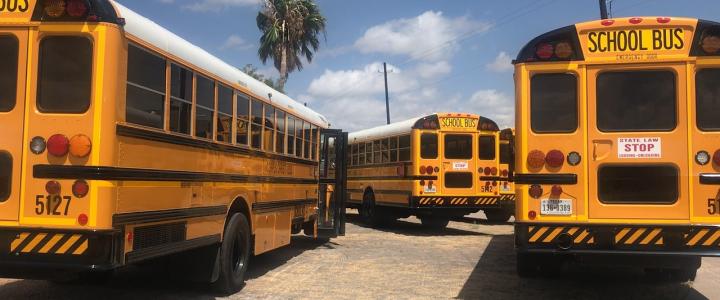
EPA Clean School Bus Program funds bus buys in New Hampshire
Two New Hampshire school districts were awarded $2,765,000 recently to purchase new electric school buses. The Henniker SAU Office will integrate four electric buses into its fleet, and the Rumney School District will add three.
The districts applied for the funding through the EPA Clean School Bus Program, which funds the replacement of higher-polluting school buses with those that are low- or zero-emission, using money from the Bipartisan Infrastructure Law, which provides $5 billion over five years (FY 2022-2026) for this effort.
School buses in New Hampshire travel more than 11 million miles each year, providing transportation for an estimated 169,000 pupils daily. While newer school buses meet EPA’s emission standards, many older buses continue to emit greater amounts of pollutants. These pollutants, including nitrogen oxides and particulate matter, negatively impact human health, especially in children who breathe faster than adults and whose lungs are not fully developed.
Replacing the high-polluting buses will reduce harmful emissions that increase the risk of asthma and other respiratory illnesses, as well as minimize greenhouse gas emissions in the transportation sector. These replacement buses will ensure cleaner air for students, bus drivers, school staff working near the bus loading areas and the communities through which the buses drive each day.
Under the Clean School Bus Program, half of the available funding is dedicated to zero-emission school buses, and the other half is for clean school buses. A zero-emission school bus produces absolutely no exhaust emission of any air pollutant and greenhouse gas. A clean school bus is one that reduces emissions and is operated entirely or in part using an alternative fuel (e.g., propane).
There are also state opportunities to receive grant funding for electric school buses like New Hampshire’s Clean Diesel Grant Program or the Granite State Clean Fleets Grant Program, both of which are administered by NHDES. For more information about NHDES’ grant programs, email: ms-grants@des.nh.gov.




